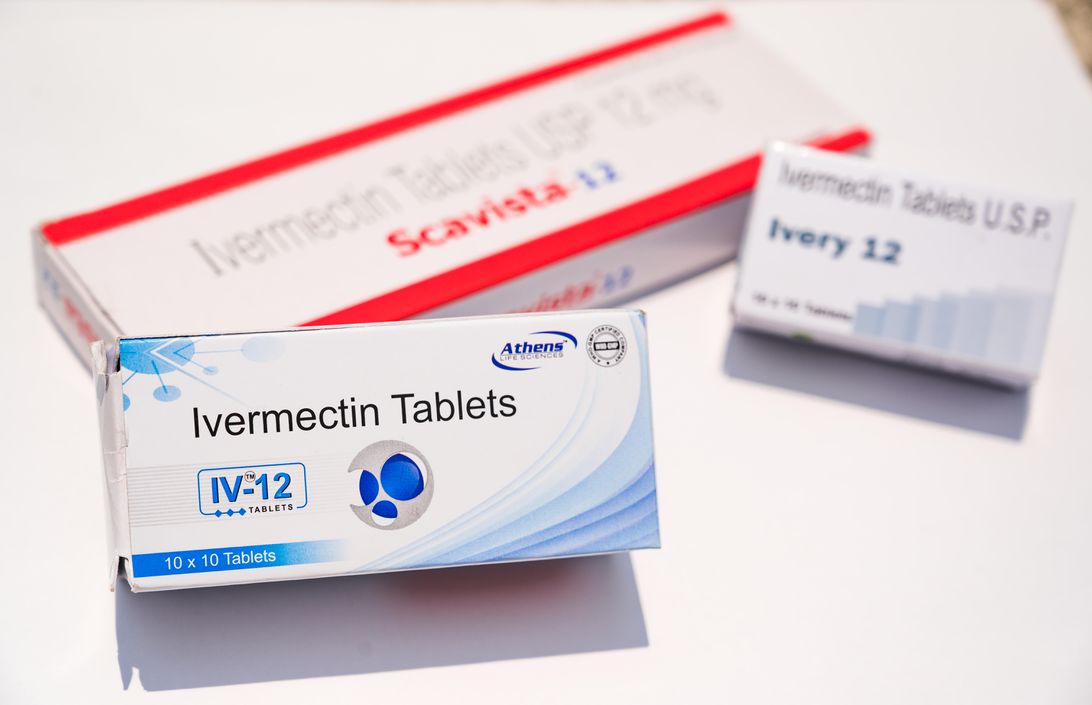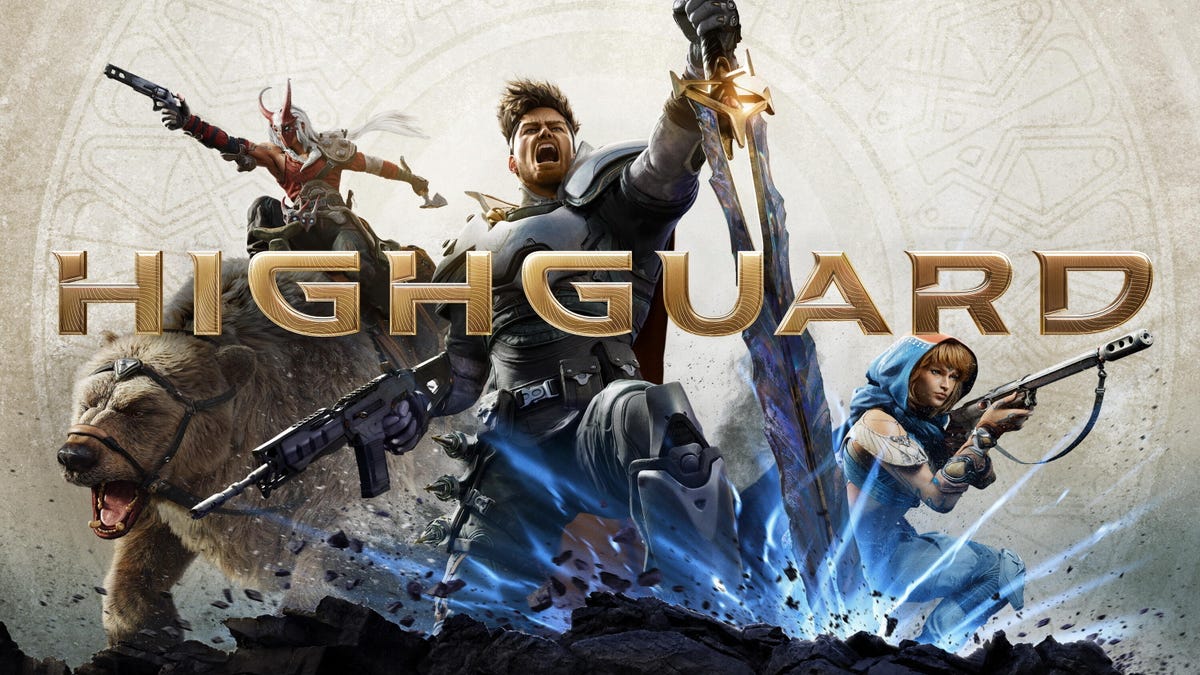Technologies
Ivermectin and COVID-19: Why poison centers are getting calls about this controversial drug
Is this a miracle pill or a sham?

Since the start of the COVID-19 pandemic, some medical professionals have reviewed already available drugs to see if they could be used as effective treatments. Ivermectin, an anti-parasitic, was administered to some patients across the globe, with seemingly positive effects. However, more studies show it has little to no effect when it comes to treating COVID-19. There’s also been an increase in calls to poison centers by people who are taking ivermectin intended for animals.
On one side, there are doctors who say ivermectin could help end the pandemic if used globally. On the other are public health officials who have reviewed the data and say the drug’s effectiveness against COVID-19 isn’t conclusive.
Here’s everything you need to know about ivermectin and its use for COVID-19.
What is ivermectin?
Ivermectin is an anti-parasitic medicine «that works by altering cellular channels,» said Dr. Soumi Eachempati, CEO of Cleared4 and former professor of surgery and public health at Weill Cornell Medical College. The drug inhibits some viruses from infecting cells, thus preventing the virus from spreading. Ivermectin is usually given to treat parasitic infections like lice and Strongyloides, according to Eachempati.
Scientists at pharmaceuticals giant Merck discovered ivermectin in 1975 and began to use it to treat scabies, river blindness and other parasitic diseases carried by worms and lice starting in 1981. It’s on the World Health Organization’s list of essential medicines for a basic health care system. More than 250 million people take the drug across the globe each year, and it’s effective for animals as well.
The drug is considered safe when taken in appropriate dosages. Side effects for the ivermectin vary depending on whether it’s taken orally to treat intestinal infections or topically for skin infections. Oral tablets can cause drowsiness, nausea, vomiting and, in very rare cases, an increase in heart rate and seizures. Side effects for the topical ivermectin can include skin rash and irritation, while dry skin and stinging pain are severe and rare.
Can ivermectin be used to cure COVID-19?
This is where things get complicated. Public health agencies, including the Federal Drug Administration, the National Institutes of Health and the World Health Organization, don’t suggest ivermectin’s use to treat COVID-19. They cite the lack of data from large, randomized trials confirming the drug’s effectiveness to treat the disease.
Doctors who cited multiple smaller studies and firsthand experience say otherwise. They claim ivermectin does work to prevent people from developing symptoms from COVID-19 and can shorten recovery time for those already infected.
What do the public health agencies say about ivermectin use for COVID-19 treatment?
The FDA said in March it hasn’t approved the use of ivermectin to treat COVID-19. It warned that large doses of the drug are «dangerous and can cause serious harm.» The agency also advised against human use of ivermectin produced for animals, such as cows and horses, as the doses aren’t the same and could contain ingredients intended only for animals.
A growing number of people have been taking ivermectin for animals as word’s spread on social media about its possible use against COVID-19. This has resulted in some people calling state poison centers after taking the drug, since the medication is intended for animals. On Aug. 20, the Mississippi State Department of Health sent out an alert regarding the number of calls its poison center received, with 70% related to the «ingestion of livestock or animal formulations of ivermectin purchased at livestock supply centers.»
In April, the FDA reaffirmed in a post on its website that ivermectin isn’t approved to treat COVID-19 nor has it been given emergency use authorization.
The NIH said in February there was insufficient data to «recommend either for or against the use of ivermectin for the treatment of COVID-19.» It did say lab tests found the drug stopped the reproduction of the SARS-CoV-2 virus that cause the disease. However, to be effective, the dosages would need to be «100-fold higher than those approved for use in humans.»
While some clinical studies showed ivermectin to have no benefit, the NIH said others saw a lower mortality rate among patients. However, those studies were incomplete or had methodological limitations such as small sample sizes or patients receiving additional medicine along with ivermectin, according to the NIH.
The WHO said in March the current evidence on the use of ivermectin for treatment of COVID-19 was «inconclusive.»
A doctor in Arkansas who prescribed the drug to patients is under investigation by the state medical board, according to a report from CNN. He reportedly gave ivermectin prescriptions to prisoners at the county jail where he was contracted to provide medical services.
Who says ivermectin is a treatment, and what information do they have?
Ivermectin’s potential use as a COVID-19 therapeutic made headway last December during a Senate Homeland Security Committee meeting called Focus on Early Treatment of COVID-19. Dr. Pierre Kory, a pulmonary and critical care specialist, testified about the drug’s usage for treatment of the disease.
«Ivermectin is highly safe, widely available, and low cost,» Kory said in the Senate meeting. «We now have data from over 20 well-designed clinical studies, 10 of them randomized, controlled trials, with every study consistently reporting large magnitude and statistically significant benefits in decreasing transmission rates, shortening recovery times, decreasing hospitalizations, or large reductions in deaths. These data show that ivermectin is effectively a ‘miracle drug’ against COVID-19.»
During his testimony, Kory referred to a paper he authored — Review of the Emerging Evidence Demonstrating the Efficacy of Ivermectin in the Prophylaxis and Treatment of COVID-19 — that was published in the May edition of the American Journal of Therapeutics.
The paper was also included in the Frontiers of Pharmacology journal in January but was then removed in March. Dr. Frederick Fenter, chief executive editor of the journal, said the paper was removed due to «strong, unsupported claims based on studies with insufficient statistical significance, and at times, without the use of control groups.» Fender also said the authors promoted their own specific ivermectin-based treatment, which goes against editorial policies.
A study listed in Kory’s paper involved giving ivermectin to 234 uninfected health care workers in Argentina and found those who received the drug were far less likely to be diagnosed with COVID. For mildly ill patients, an Iraq study saw a quicker recovery time.
There are also studies that show otherwise. A clinical trial of 476 patients found ivermectin didn’t improve the recovery time in patients who had COVID-19. A review of 10 random clinical trials, with more than 1,000 participants, also didn’t find improvements with ivermectin. One Egyptian study claimed to show positive results, but it’s since been redacted over ethical concerns. Another study, of 1,500 patients, found that ivermectin had «no effect whatsoever.»
Merck, the company that discovered ivermectin, released a statement in February saying there was «no scientific basis for a potential therapeutic effect against COVID-19 from pre-clinical studies» and «no meaningful evidence for clinical activity or clinical efficacy in patients with COVID-19 disease.» It also cited a lack of safety data from major studies.
Why is there controversy over ivermectin?
The debate about ivermectin’s usage to treat COVID-19 has gone from the hospital to social media, exacerbating the discourse as well as the vitriol. While those in support of the drug appear to want an end to the pandemic, their arguments in favor of ivermectin have become fodder for anti-vaxxers and conspiracy theorists.
Groups that have spread misinformation about COVID-19 throughout the pandemic latched onto ivermectin’s usage following Kory’s Senate testimony. Anti-vax groups on Telegram share misinformation about the vaccine while asking where they can buy the drug. Rumble, an alternative video platform to YouTube, has pages of videos falsely saying vaccines are ineffective while advising people to also take ivermectin.
Anti-vax posts and videos can also be found on YouTube, Facebook and Twitter, although the companies are attempting to take these posts down or make them harder to find.
Kory was a guest on the Dark Horse Podcast hosted by Bret Weinstein, a former professor at Evergreen State College, on June 1 to talk about ivermectin. That video was eventually demonetized on YouTube and Weinstein’s channel received a strike, which prevented him from posting content for one week and could lead to its removal if he receives two more strikes within 90 days.
YouTube says its actions on Weinstein’s videos were part of its policies.
«While we welcome open discussions of potential treatments and clinical trials related to COVID-19 on YouTube, based on guidance from the CDC, FDA and other local health authorities, we don’t currently allow content that recommends ivermectin as an effective treatment or prevention method for the virus,» said Ivy Choi, a YouTube spokesperson. «We craft our policies to prevent the risk of egregious real-world harm, and update them as official guidance evolves. We do allow exceptions to our policy about ivermectin, including content that also gives viewers the full context of the FDA’s current position.»
Because of YouTube’s decision, the controversy over ivermectin grew and became tied to what some claim to be «big tech censorship.»
What is required for ivermectin to get approved for COVID-19 treatment?
For the public health agencies, it’s going to come down to the results of large clinical studies being conducted around the world.
«In the UK, it was announced that ivermectin will be added to the Principle Trial, a large clinical study designed to assess potential COVID therapies for non-hospitalized therapies for patients at higher risk for severe disease,» said Dr. David Shafran, head of pediatrics at telehealth app K Health. «This should demonstrate more definitively the efficacy of ivermectin in early-stage COVID infections. Fingers crossed because it’s a cheap medication with a good safety profile. It would be great to add this to the armament of medication to fight COVID.»
The Oxford University Principle Trial has more than 5,000 participants and will give a three-day course of oral ivermectin treatment to individuals randomly and compare their results to individuals who will receive standard care.
In the US, the NIH is evaluating therapeutics for COVID-19 with its Accelerating COVID-19 Therapeutic Interventions and Vaccines (ACTIV) master protocol. ivermectin was added in phase three of ACTIV-6, which will test the effectiveness of repurposed drugs.
«The ACTIV prioritization group, trial team and trial oversight groups continuously track new data on any agent we are studying in our trials and evaluate that data for how it might influence our testing of that agent and the safety/well being of the participants in the trial,» said Dr. Sarah Dunsmore, a program director at the National Center for Advancing Translational Sciences that is part of the NIH.
What’s unclear is how long the whole process will take. The studies need time to be completed, and then the agencies will require additional time to come up with decisions based on the data.
Technologies
Highguard to Go Offline After Rapid Player Drop
Another live service game bites the dust.

Highguard found itself in the spotlight of the online video game discourse back in December during The Game Awards show, when host Geoff Keighley made a special introduction for the game’s trailer, which came very late in the show, a time reserved for some of the night’s biggest reveals. The next day, there were questions as to what this free-to-play multiplayer shooter from a new studio was. Now, less than two months after its release, Highguard is being shut down.
Developer Wildlight Entertainment posted on X about Highguard’s shutdown on Tuesday. The developer says it was unable to gain the player base it needed to get the game going, and it will shut down servers on March 12.
«Despite the passion and hard work of our team, we have not been able to build a sustainable player base to support the game long term,» the studio said. «Servers will remain online until March 12th. We hope you’ll jump in with us one more time to show your support and get those final great matches in while we still can.»
In his review of Highguard, CNET’s David Lumb described the game as a first-person shooter that had the lane-skirmish fighting found in multiplayer online battle arena games and base raiding mechanics found in titles like Rainbow Six: Siege. The developers described this new mash-up as a «raid shooter.» Wildlight has since acknowledged that the initial showing of the game at The Game Awards didn’t properly represent the game.
When the game was released on Jan. 26, Highguard started off strong. Nearly 100,000 people were playing the game on PC at launch, according to SteamDB. That number dropped significantly in the days that followed, and in the last week of February, it fell to slightly more than 400 a day. Things were looking bleak for Wildlight for most of February as the player count dwindled. On Feb. 11, members of the developer team posted on LinkedIn about layoffs, and the game’s website went down on Feb. 17.
«Negative press is a hard stink to clean off,» Lumb said today. «When gamers decide to hate a game, they’ll sink it, especially if it doesn’t have years of runway like No Man’s Sky.»
On the r/games subreddit, in a thread about the announcement, posters shared their problems with the game. Some pointed to dated visuals, while others said the gameplay was confusing and sorely needed refinement.
Former Wildlight developers told Bloomberg on Feb. 26 that they felt it was the «hubris» of the studio leadership that led to the game’s demise. The studio was made up of former members of the team that developed Titanfall, Titanfall 2 and Apex Legends, and they were not aware of how the gaming landscape had changed since those games were released.
Wildlight says it intends to continue updating the game. A final update will be made available sometime on Wednesday or Thursday, and it will include a new character, a new weapon, account level progression and skill trees.
Technologies
Google’s Epic Settlement Brings Fortnite Back to Google Play, Plus Broad Dev Discounts
Welcome back, Fortnite: Google is already making improvements to the Google Play Store following last year’s Epic Games settlement.

Google moved forward on Wednesday with its agreement to settle a years-long antitrust battle with Epic Games, marking a significant development for Fortnite players. While the settlement still awaits final approval, Epic Games founder and CEO Tim Sweeney posted the news on X.
«Fortnite will return to Google Play Store worldwide soon,» Sweeney wrote. «Epic Games Store continues supporting Android worldwide alongside Windows and Mac, and installation on Android will become much easier later in 2026.»
A Google representative didn’t immediately respond to a request for comment.
The Epic Games settlement included an offer from Google to change how the Google Play Store works.
«For new installs (first-time installs from users after the new fees are launched in a region), we are reducing the in-app purchase (IAP) service fee to 20%,» Google reported on its Android Developers Blog.
That’s a significant drop from the previous 30%, which could make buying apps more affordable for customers when the change rolls out to US customers by June 30. Google is also discounting its cut of recurring subscription fees to 10%.
Even more important for long-term Google Play offerings, Google is now adding the ability for developers to offer their third-party app store payment option, sideloaded with Google’s payment method, so users will have new choices regarding the platform on which they pay.
What this means for Google Play purchases
Keep in mind, Google has only just introduced its program allowing qualified alternative app stores on Android and is still in the process of lowering fees, so changes are unlikely to be felt for several months.
When the updates do roll out, developers on Google Play — including Epic Games — will have new opportunities to save money when selling their apps, and new methods to sell that didn’t exist before. That could attract more developers to the Google Play Store and make apps easier for Android users to access. If there’s an app you’ve been wishing was available on Google Play, it’s now more likely to become available.
The changes may also lead to lower prices for customers, although that’s not guaranteed. Google is lowering its profit share, but developers will have to decide whether to pass those savings along to buyers. Fortnite fans aren’t the only ones who have something to look forward to, but it will take time to see the final effects.
Technologies
Honor’s Robot Phone Is the First of Its Kind, Integrating Robotics Into a Smartphone
-

 Technologies3 года ago
Technologies3 года agoTech Companies Need to Be Held Accountable for Security, Experts Say
-

 Technologies3 года ago
Technologies3 года agoBest Handheld Game Console in 2023
-

 Technologies3 года ago
Technologies3 года agoTighten Up Your VR Game With the Best Head Straps for Quest 2
-

 Technologies4 года ago
Technologies4 года agoBlack Friday 2021: The best deals on TVs, headphones, kitchenware, and more
-

 Technologies5 лет ago
Technologies5 лет agoGoogle to require vaccinations as Silicon Valley rethinks return-to-office policies
-

 Technologies5 лет ago
Technologies5 лет agoVerum, Wickr and Threema: next generation secured messengers
-

 Technologies4 года ago
Technologies4 года agoOlivia Harlan Dekker for Verum Messenger
-

 Technologies4 года ago
Technologies4 года agoiPhone 13 event: How to watch Apple’s big announcement tomorrow
